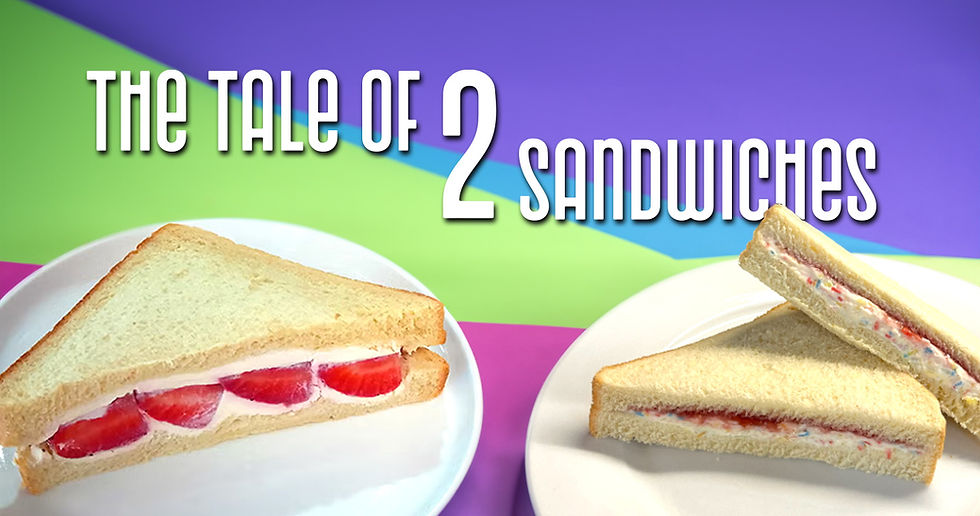Building a Strong Food Brand in the Digital Age
- Rhys Bennett
- Dec 12, 2024
- 3 min read

In today's hyper-connected world, simply making delicious food isn't enough. To truly thrive, food businesses need to build a strong brand that resonates with their target audience. This goes beyond just having a catchy logo – it's about creating a unique identity and building meaningful connections with your customers.
Imagine walking down a supermarket aisle. You're faced with a dizzying array of choices. What makes you choose one product over another? Price? Maybe. But more often than not, it's the brand that wins you over. It's the story behind the product, the values it represents, and the emotional connection it evokes.
Think of it this way: your brand is your unique fingerprint in the crowded marketplace. It's what sets you apart from the competition. It's the story you tell – are you a family-run business with a passion for local ingredients? Are you a socially conscious company committed to sustainability and ethical practices? Are you an innovative brand pushing the boundaries of flavour and creativity?
So, how do you build a strong food brand in this digital age?
Tell your story authentically: Don't just tell customers what you do; tell them why you do it. What drives your passion for food? What makes your brand unique? Share your values, your mission, and the stories behind your ingredients. Authenticity resonates with consumers.
Embrace the power of visual storytelling: In the digital age, visuals are king. High-quality photos and videos are essential for showcasing your products and capturing the attention of potential customers. Think vibrant, mouthwatering images of your dishes, engaging behind-the-scenes glimpses into your production process, and captivating video content that tells your brand story.
Engage with your community: Social media is your playground. Use platforms like Instagram and TikTok to share your brand's personality, run engaging contests, and respond to customer comments and messages. Host online cooking classes, partner with local influencers, and actively participate in relevant online communities.
Leverage user-generated content: Encourage customers to share their experiences with your brand on social media. Repost customer photos and videos, feature positive reviews on your website, and create a dedicated section for customer testimonials. This not only builds social proof but also shows that you value your customers' opinions.
Build a strong online presence: Create a professional website that showcases your brand and products. Utilise search engine optimisation (SEO) techniques to improve your website's visibility in search results. Make sure your website is user-friendly, mobile-responsive, and easy to navigate.
Run targeted advertising campaigns: Utilise social media advertising, email marketing, and other digital marketing strategies to reach your ideal customers. Tailor your campaigns to specific demographics, interests, and behaviors to maximise their effectiveness.
But building a strong food brand is more than just marketing and social media. It's about delivering on your promises. Ensure that your products consistently meet the high standards you've set. Prioritise quality ingredients, impeccable food safety practices, and exceptional customer service.
And don't forget the power of technology! Tools like Fudrata can streamline your operations and ensure the quality and consistency of your products. By automating tasks like recipe formulation, cost analysis, and allergen management, Fudrata allows you to focus on what you do best: creating delicious food and building strong relationships with your customers.
Building a strong food brand takes time, effort, and consistent dedication. It's an ongoing journey that requires continuous learning and adaptation. But by focusing on building authentic connections with your customers, delivering high-quality products, and leveraging the power of digital marketing, you can establish a strong brand that will not only survive but thrive in the competitive food industry.



